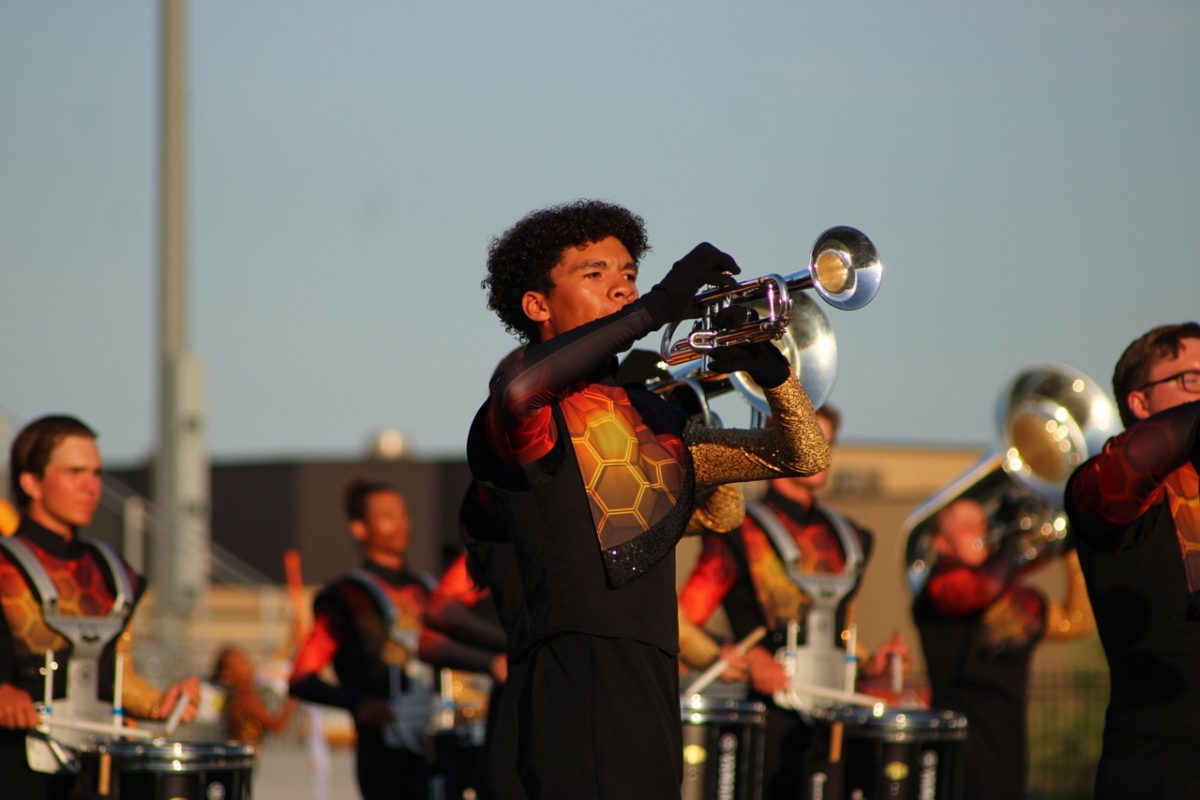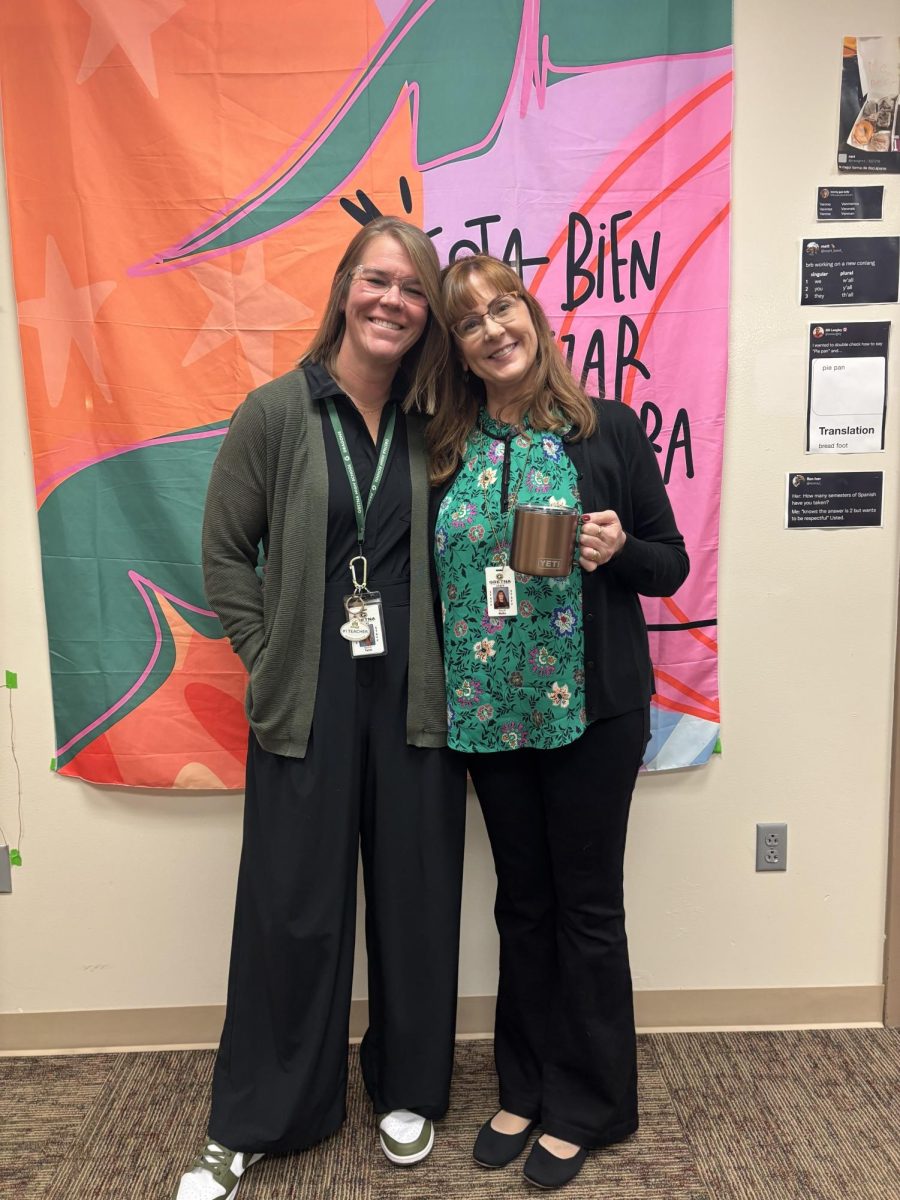The bi-annual Gretna High School trip to Spain and France is set for the summer of 2026. Foreign language students will embark on a ten-day adventure that begins in Spain and ends in France. They depart on June 1 and get back on June 10.
The trip is organized by French teacher Melinda Randall and former English Language Learner (ELL) teacher Molly Connor, but all of the foreign language teachers agree that students going out of their comfort zone to immerse themselves in another culture is important.
“I think it’s so important for you to see a culture other than your own and learn things from other cultures that can make your life better, too,” said Spanish teacher Zoe Chagnon.
Chagnon has only been to Spain once for a foreign exchange program. She stayed in a town called Salamanca for one summer and said it was a great experience.
“I loved Spain. I wish I could’ve stayed longer,” Chagnon said. “I stayed there for just a summer, but it’s just such a different pace of life there; it felt a lot slower and calmer, like there was a sense of peace in the air, which I loved. People were super friendly and nice to me. I lived in a great town.”
Most foreign language teachers have visited a country that speaks the language they have taught at least once. Randall has visited France five times and has had an excellent experience each time.
“It was magical. Just being in a culture that you hear about, read about, is just… It’s extra special to see it in person,” Randall said about her first time visiting Paris.
Kellye Deane, GHS’s German teacher, has been to Germany over 30 times in her life. She was very young the first time she went, and the differences in culture were noticeable.
“The first time I was in Germany, I had just turned 14,” Deane said. “I went with my family, and we toured around, and I was in Munich. And so I got to see that city, and I was struck by how clean things were when I was in Germany. That was the first thing that I remember.”
Being in a new country for the first time can always come with some culture shocks for visitors. For many, the culture shock is especially surprising.
“The openness, I would say, of sexuality and the belief in nudity and the body as something not to be ashamed of,” Deane said. “That is very different than here in the United States. The idea of having nudist colonies that will be there and people will be in parks, sunbathing, is something for, particularly the Midwest, and where we’re at is very different.”
While some things about the way of life in other countries can take a while to adjust to, there are some differences that can be easily appreciated, and other aspects of culture that are similar to the way we live in the United States. One of the differences that Randall noticed was the French’s perspective on money.
“I think the people have a lot more different outlook on, well, money, talking about money. They don’t do that. And everything that they make is of very good quality, whether it’s food or products that you wear for clothing,” Randall said. “And they may not have a ton of clothes, but everything that they have is of really good quality. And when they have a meal or invite somebody over, it’s always of really good quality. Like when you have a really elegant meal for a holiday, that’s what it’s like for them all the time.”
Randall said she admired how much care goes into the things people make and share in Spain. But for Chagnon, what stood out most wasn’t about things at all, it was about how people live.
“They kind of live a slower pace of life than us, which I kind of appreciated. And they’re really close with their families, family is super important to them. So they take time out of their day to make sure they’re with their family,” Chagnon said. “They have a siesta time in the afternoon where all the businesses shut down for a while. Everyone is out of school, and you just spend time with family.”
For Deane, the primary differences between Germans and Americans are their work-life balance and their honesty.
“Work is not the end-all, be-all,” Deane said. “They treat it as a component of their life, not everything. Whereas we tend to work, work, work, much more. They are slower in some respects, but faster in others. They are harder to get to know on the outside, but, once they are your friend, they are a true friend, somebody that will stay around for the rest of your life. They are very upfront and forthright, do not sugarcoat like we do in the U.S. as much.”
Although there are some things about our lifestyles that are different, there are also several ways in which they are the same.
“Family is important to them and to a lot of Americans, that’s important,” Randall said. “We love sports, they love sports. Fashion is important in this country, it’s important there. I think people are a lot more interested in cooking and cuisine than they used to be, and that’s always been an important thing in French culture.”
Chagnon said she appreciated the comfort that Spain provided, which felt similar to home in the United States.
“I would say it was just kind of like the United States,” Chagnon said. “It felt safe. It felt welcoming. Spain is such an old country. It kind of felt like a whole new world when I was there, so I don’t know, it’s hard. But I’d say just like the tourism, the feeling that you’re welcome, they feel very united as I feel like we are.”
Deane found that Germans and Americans have similar values when it comes to making the best of the time in the day.
“We are both time-oriented,” Deane said. “We value time, we value family and who we are as a nation. It’sas a little bit different, and we have a lot more patriotism, but they do believe that they have a right and a place in the world. They are becoming to be more proud of their nation than they were in the past. They will not reach the same standard as us just because of their history. But we share a lot of commonality with our language and with our holidays that we do and with our background, because a lot of us did come from Germany or a lot of the traditions that we have, particularly around Christmas or Easter, do come from Germany.”
There are a lot of things that we can learn from cultures that are different from ours.
“I feel like I learned to just slow down in life and make sure I’m prioritizing time with family and friends and really appreciating the time that we have with them because I feel like we’re always wanting to work harder and work more and do better in our jobs, and sometimes we lose sight of what’s actually important,” Chagnon said. “So they really taught me to just slow down, spend time with those who matter most to me, and do the things that I want to do.”
Traveling to foreign countries can teach so many valuable lessons that stick with you for a lifetime.
“I think learning how somebody reacts to what you’re saying, and I would say the biggest part of this is when you ask a German a question, they’re going to tell you their answer and their opinion, whether or not it is offensive to you, is your problem,” Deane said. “And I think that is something to be valued.”
There are some things that students will have to adapt to when they travel to Spain, France or Germany, such as manners and etiquette when talking to strangers.
“I had to learn how to do things on my own because at 18, when I went over, it was very difficult to get to know people to begin with, because they are not surface people like the United States are,” Deane said. “They don’t do small talk. And that is our one way to get into knowing people; we do small talk very well. In Germany, it’s not a part of their culture. And so if I wanted to do something, I had to go out on my own and do it. And then I also had to take time and introduce myself to people, get out of my shell, and actually meet people where they were, not wait for people to come to me.”
When students travel to these new countries, foreign language teachers believe that using the languages they learned in school can be a lot of help.
“I would highly encourage them to speak the language if they can because people are going to treat you a lot better when they see that you are respecting their culture in that way and just showing them respect in that way and, I’ve always thought people were a lot more friendly, and maybe it was because I was using French, than not, but I have noticed sometimes if you don’t use the language, they’re not going to be as willing to help you,” Randall said.
French teacher Randall highly encourages students to use the language as much as they can to fully immerse themselves in the culture. In her experience, she has found that French people will treat you much more kindly and more graciously when you try to speak the language.
“I would say, just let yourself immerse into their culture and not worry so much about it until you get there, because you don’t know really what it feels like to go into a new culture until you’re there,” Chagnon said. “So, just let yourself adapt to the culture, learn about it, let yourself fully immerse into it, and then it’s a little bit easier. But it is like a slower pace of life, which I think is easier to adapt to than the opposite way.”
Even though the foreign language teachers teach different languages, they all agree that experiencing life in another culture is very important.
“I think it’s so important for you to see a culture other than your own and learn things from other cultures that can make your life better, too,” Chagnon said.
It is true that visiting a place and getting the real, authentic experience is incomparably better than just reading or watching movies about the culture.
“I don’t think you can get the same impression if you just read about something as living it,” Randall said. “It’s completely different and it’s way more fun to do it in person than to just hear about it or look at pictures of it.”
“We are a great country,” Deane said. “That is not deniable, but we don’t do everything the best. There are good things about other cultures. There are different things about other cultures. And by going outside of our comfort zone, it changes us to where we realize more about ourselves, and then we have an ability to take on the perspective of other people and to look at what they’re trying to say.”









